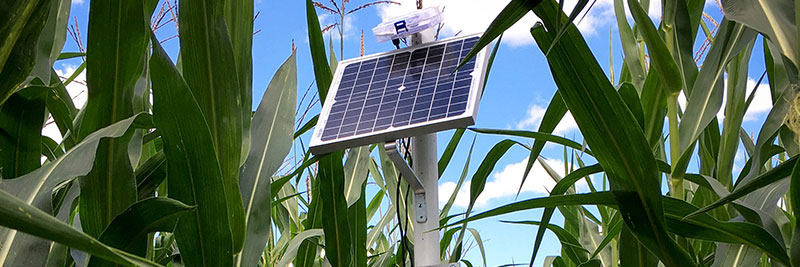Bachelor of Science
Program Details
Interested in a Biosystems Engineering degree?
The Biosystems Engineering (B.S.) program is accredited by the Engineering Accreditation Commission of ABET, under the General Criteria and Program Criteria for Biological and Similarly Named Engineering Programs.

- Curriculum (Print Version PDF)
- Course Descriptions (Office of the Registrar)
- College Undergraduate Admissions
Enrollment
- Fall 2024 – 197
- Fall 2023 – 190
- Fall 2022 – 200
- Fall 2021 – 196
- Fall 2020 – 214
Degrees Awarded
- 2023-2024 – 36
- 2022-2023 – 49
- 2021-2022 – 46
- 2020-2021 – 47
- 2019-2020 – 31
Curriculum
Courses
1. University Requirements: (23 Credit (cr))
- Writing, Rhetoric and American Cultures (WRA) 4 cr
- Integrative Studies in Humanities, IAH 201-210 and IAH 211 or> 8 cr
- Integrative Studies in Social Sciences, ISS 2XX and ISS 3XX 8 cr
- Bioscience: BS 161 Cell and Molecular Biology 3 cr
2. College Requirements: (30 cr)
- *CEM 151 General and Descriptive Chemistry 4 cr
- *EGR 100 Introduction to Engineering Design 2 cr
- *EGR 102 Introduction to Engineering Modeling 2 cr
- *MTH 132 Calculus I 3 cr
- *MTH 133 Calculus II 4 cr
- MTH 234 Multivariable Calculus 4 cr
- MTH 235 Differential Equations 3 cr
- *PHY 183 Physics for Scientists and Engineers I 4 cr
- PHY 184 Physics for Scientists and Engineers II 4 cr
*College Admission Requirement
3. Major Requirements: (64-66 cr)
a. Complete all of the following courses: (44 cr)
- BE 101 Introduction to Biosystems Engineering 1 cr
- BE 201 Drafting in Biosystems Engineering 1 cr
- BE 230 Engineering Analysis of Biological Systems 3 cr
- BE 332 Engineering Properties of Biological Materials 3 cr
- BE 334 Biosystems Engineering Laboratory Practice (W) 3 cr
- BE 350 Heat and Mass Transfer in Biosystems 3 cr
- BE 351 Thermodynamics for Biological Engineering 3 cr
- BE 360 Microbial Systems Engineering 3 cr
- BE 385 Engineering Design and Optimization for Biological Sys 3 cr
- BE 485 Biosystems Design Techniques (W) 3 cr
- BE 487 Biosystems Design Project 3 cr
- BS 162 Organismal and Population Biology 3 cr
- CE 221 Statics 3 cr
- CE 321 Introduction to Fluid Mechanics 4 cr
- CEM 143 Survey of Organic Chemistry 4 cr
- CEM 161 Chemistry Laboratory I 1 cr
b. Select one of the following courses: (2 cr)
- BS 171 Cell and Molecular Biology Laboratory 2 cr
- BS 172 Organismal and Population Biology Laboratory 2 cr
c. Select one of the following courses: (3-4 cr)
- IBIO 341 Fundamental Genetics 4 cr
- IBIO 355 Ecology 3 cr
- MGI 301 Introductory Microbiology 3 cr
- PLB 301 Introductory Plant Physiology 3 cr
- PSL 250 Introductory Physiology 4 cr
d. Select one of the following courses: (3-4 cr)
- CSS 442 Agricultural Ecology 3 cr
- CSS 451 Biotechnology Apps for Plant Breeding and Genetics 3 cr
- FOR 406 Applied Forest Ecology: Silviculture 3 cr
- FSC 440 Food Microbiology 3 cr
- MGI 365 Medical Microbiology 3 cr
- MGI 404 Human Genetics 3 cr
- MGI 425 Microbial Ecology 3 cr
- MGI 445 Microbial Biotechnology (W) 3 cr
- PLB 402 Biology of Fungi 4 cr
- PSL 425 Physiological Biophysics 3 cr
e. Select four of the following courses: (12 cr)
- BE 444 Biosensors for Medical Diagnostics 3 cr
- BE 449 Human Health Risk Analysis for Eng Controls 3 cr
- BE 456 Electric Power and Control 3 cr
- BE 469 Sustainable Bioenergy Systems 3 cr
- BE 477 Food Engineering: Fluids 3 cr
- BE 478 Food Engineering: Solids 3 cr
- BE 481 Water Resources Systems Analysis and Modeling 3 cr
- BE 482 Engineering Ecological Treatment Systems 3 cr
- BE 484 Water Resource Recovery Engineering 3 cr
- CHE 468 Biomass Conversion Engineering 3 cr
Optional Concentrations
The department offers concentrations for students who wish to focus on a specific application area in the discipline. The concentrations are available to, but not required of, any student enrolled in the Bachelor of Science degree program in Biosystems Engineering. Courses completed to satisfy requirement 3. above may also be used to satisfy the requirements of a concentration. The concentration will be noted on the student’s transcript.
Bioenergy and Bioproduct Engineering Concentration: (15-17 cr)
To earn a Bachelor of Science degree in Biosystems Engineering with a bioenergy and bioproduct engineering concentration, students must complete requirements 1., 2., and 3. above and the following:
1. All of the following courses: (9 cr)
- BE 469 Sustainable Bioenergy Systems 3 cr
- CHE 468 Biomass Conversion Engineering 3 cr
- CSS 467 Bioenergy Feedstock Production 3 cr
2. Two of the following courses: (6-8 cr):
- CHE 481 Biochemical Engineering 3 cr
- CSS 442 Agricultural Ecology 3 cr
- CSS 451 Biotechnology Apps for Plant Breeding and Genetics 3 cr
- FOR 406 Applied Forest Ecology: Silviculture 3 cr
- FOR 427 Biomass and Bioproducts Chemistry 3 cr
- FOR 466 Natural Resource Policy 3 cr
- FW 444 Conservation Biology 3 cr
- GLG 435 Geomicrobiology 4 cr
- MC 450 International Environmental Law and Policy 3 cr
- ME 417 Design of Alternative Energy Systems 3 cr
- ME 422 Introduction to Combustion 3 cr
- MGI 425 Microbial Ecology 3 cr
- MGI 445 Microbial Biotechnology (W) 3 cr
- PLB 402 Biology of Fungi 4 cr
Biomedical Engineering Concentration: (14-15 cr)
To earn a Bachelor of Science degree in Biosystems Engineering with a biomedical engineering concentration, students must complete requirements 1., 2., and 3. above and the following:
1. All of the following courses: (6 cr)
- BE 444 Biosensors for Medical Diagnostics 3 cr
- BE 449 Human Health Risk Analysis for Eng Controls 3 cr
2. One of the following courses: (3 cr)
- MGI 365 Medical Microbiology 3 cr
- MGI 404 Human Genetics 3 cr
- PSL 425 Physiological Biophysics 3 cr
3. Two of the following: (5-6 cr)
- BE 440 Entrepreneurial Eng for Innovation in Health and Safety 3 cr
- BLD 204 Mechanisms of Disease 3 cr
- BLD 313 Quality in Clinical Laboratory Practice 3 cr
- BLD 430 Molecular Diagnostics 2 cr
- BLD 434 Clinical Immunology 3 cr
- ECE 445 Biomedical Instrumentation 3 cr
- ME 494 Biofluid Mechanics and Heat Transfer 3 cr
- MGI 365 Medical Microbiology 3 cr
- MGI 404 Human Genetics 3 cr
- MSE 425 Biomaterials and Biocompatibility 3 cr
- PLB 400 Introduction to Bioinformatics 3 cr
- PSL 425 Physiological Biophysics 3 cr
Courses used to fulfill requirement 2 in this concentration may not be used to fulfill requirement 3 in this concentration.
Ecosystems Engineering Concentration: (14-15 cr)
To earn a Bachelor of Science degree in Biosystems Engineering with an ecosystems engineering concentration, students must complete requirements 1., 2., and 3. above and the following:
1. All of the following courses: (9 cr)
- BE 481 Water Resources Systems Analysis and Modeling 3 cr
- BE 482 Engineering Ecological Treatment Systems 3 cr
- BE 484 Water Resource Recovery Engineering 3 cr
2. One of the following courses: (3 cr)
- CSS 442 Agricultural Ecology 3 cr
- MGI 425 Microbial Ecology 3 cr
3. Two of the following courses: (5-6 cr)
- CSS 210 Fundamentals of Soil Science 3 cr
- CSS 330 Soil Chemistry 2 cr
- CSS 360 Soil Biology 3 cr
- CSS 442 Agricultural Ecology 3 cr
- CSS 455 Environmental Pollutants in Soil and Water 3 cr
- ENE 422 Applied Hydraulics 3 cr
- FOR 340 Forest Ecology 3 cr
- FW 417 Wetland Ecology and Management 3 cr
- FW 420 Stream Ecology 3 cr
- FW 444 Conservation Biology 3 cr
- GEO 402 Agricultural Climatology 3 cr
- MC 450 International Environmental Law and Policy 3 cr
- MGI 425 Microbial Ecology 3 cr
- PLB 418 Plant Systematics 3 cr
- PLB 443 Restoration Ecology 3 cr
Courses used to fulfill requirement 2 cr in this concentration may not be used to fulfill requirement 3 cr in this concentration.
Food Engineering Concentration: (15-16 cr)
To earn a Bachelor of Science degree in Biosystems Engineering with a food engineering concentration, students must complete requirements 1., 2., and 3. above and the following:
All of the following courses: (9 cr)
- BE 477 Food Engineering: Fluids 3 cr
- BE 478 Food Engineering: Solids 3 cr
- FSC 440 Food Microbiology 3 cr
Two of the following courses, one of which must be at the 400-level: (6-7 cr)
- BMB 200 Introduction to Biochemistry 4 cr
- FSC 211 Principles of Food Science 3 cr
- FSC 401 Food Chemistry 3 cr
- FSC 430 Food Processing: Fruits and Vegetables 3 cr
- FSC 431 Food Processing: Cereals 3 cr
- FSC 432 Food Processing: Dairy Foods 3 cr
- FSC 433 Food Processing: Muscle Foods 3 cr
Other Electives (Variable)
Total Credits Required for Degree 128
These requirements are effective for students admitted to the Biosystems Engineering major beginning Fall 2023. The Department of Biosystems and Agricultural Engineering (BAE) constantly reviews program requirements and reserves the right to make changes as necessary. Consequently, each student is strongly encouraged to consult with their advisor to obtain assistance in planning an appropriate schedule of courses.
Sample
First Year
| Fall | Credits | Spring | Credits |
|---|---|---|---|
| BE 101 | 1 | BS 161 | 3 |
| CEM 151 | 4 | EGR 102 | 2 |
| CEM 161 | 1 | ISS 2XX | 4 |
| EGR 100 | 2 | MTH 133 | 4 |
| MTH 132 | 3 | PHY 183 | 4 |
| WRA 101 | 4 | ||
| Total | 15 | Total | 17 |
Sophomore Year
| Fall | Credits | Spring | Credits |
|---|---|---|---|
| BE 201 | 1 | CEM 143 | 4 |
| BS 162 | 3 | BE 230 | 3 |
| IAH 201-210 | 4 | CE 221 | 3 |
| MTH 234 | 4 | MTH 235 | 3 |
| PHY 184 | 4 | IAH 211 or > | 4 |
| BE Choice B | 2 | ||
| Total | 18 | Total | 17 |
Junior Year
| Fall | Credits | Spring | Credits |
|---|---|---|---|
| BE 332 | 3 | BE 350 | 3 |
| CE 321 | 4 | BE 360 | 3 |
| BE 351 | 3 | BE 385 | 3 |
| BE 334 | 3 | BE Choice C | 3-4 |
| ISS 3XX | 4 | Elective | 3 |
| Total | 17 | Total | 15-16 |
Senior Year
| Fall | Credits | Spring | Credits |
|---|---|---|---|
| BE 485 | 3 | BE 487 | 3 |
| BE Choice D | 3-4 | BE Choice E | 3 |
| BE Choice E | 3 | BE Choice E | 3 |
| BE Choice E | 3 | Elective | 3 |
| Elective | 3 | Elective | 2 |
| Total | 15-16 | Total | 14 |
Program Objectives
Graduates of the MSU Biosystems Engineering Undergraduate Program are expected to succeed in diverse careers where they integrate and apply principles of engineering and biology to a wide variety of globally important problems. MSU Biosystems Engineering graduates are expected to attain that success by:
- identifying and solving problems at the interface of biology and engineering, using modern engineering techniques and the systems approach;
- analyzing, designing, and controlling components, systems, and processes that involve critical biological components; and
- demonstrating vision, adaptability, creativity, a practical mindset, effective communication skills for technical and non-technical audiences, the ability to work in diverse, cross disciplinary teams, and a commitment to sustainability, continuing professional growth, and ethical conduct.
Objectives and Outcomes
Program Educational Objectives
Graduates of the MSU Biosystems Engineering Undergraduate Program are expected to succeed in diverse careers where they integrate and apply principles of engineering and biology to a wide variety of globally important problems. MSU Biosystems Engineering graduates are expected to attain that success by:
- identifying and solving problems at the interface of biology and engineering, using modern engineering techniques and the systems approach;
- analyzing, designing, and controlling components, systems, and processes that involve critical biological components; and
- demonstrating vision, adaptability, creativity, a practical mindset, effective communication skills for technical and non-technical audiences, the ability to work in diverse, cross-disciplinary teams, and a commitment to sustainability, continuing professional growth, and ethical conduct.
- working inclusively and equitably in diverse, cross-disciplinary environments towards sustainable solutions.
Updated and approved by the Biosystems Engineering faculty (June 2022) the Biosystems Engineering Industry Advisory Board (June 2022), and the Biosystems Engineering Student Group (pending Fall 2022).
Student Outcomes
Upon completion of the B.S. in Biosystems Engineering, students will have:
- an ability to identify, formulate, and solve complex engineering problems by applying principles of engineering, science, and mathematics
- an ability to apply engineering design to produce solutions that meet specified needs with consideration of public health, safety, and welfare, as well as global, cultural, social, environmental, and economic factors
- an ability to communicate effectively with a range of audiences
- an ability to recognize ethical and professional responsibilities in engineering situations and make informed judgments, which must consider the impact of engineering solutions in global, economic, environmental, and societal contexts
- an ability to function effectively on a team whose members together provide leadership, create a collaborative and inclusive environment, establish goals, plan tasks, and meet objectives
- an ability to develop and conduct appropriate experimentation, analyze and interpret data, and use engineering judgment to draw conclusions
- an ability to acquire and apply new knowledge as needed, using appropriate learning strategies
- an ability to understand the interface between biology and engineering
- an ability to apply systems concepts and develop models
More Info
Overview
Biosystems engineering integrates biology with engineering to address complex issues in areas such as bioenergy, ecosystems protection, food safety and biosecurity, and human health. Biosystems engineers solve problems with critical biological components by designing solutions, such as biological systems that produce sustainable energy, protect natural resources, provide safe food, and create products to improve human health.
Concentrations
- Concentrations
- Bioenergy and Bioproduct Engineering
- Biomedical Engineering
- Ecosystems Engineering
- Food Engineering
- Research
Research
- Food: Food Safety and Quality
- Energy: Bioenergy and Bioproduct Solutions
- Environment: Sustainable Ecosystems, Resource Conservation, and Ecological Treatment Systems
- Heath: Diagnostics, Systems Models, and Risk-Assessment Tools to Enhance Public Health
- Agriculture: Robotics, smart agriculture production
Industries
- Food Processing
- Pharmaceuticals and Health Products
- Medicine
- Environmental Consulting
- Bioenergy and Energy Conservation
- Sustainability
- Government
- Agriculture
- Careers
Careers
- Food Engineer
- Process Engineer
- Environmental Engineer
- Biotechnology Engineer
- Agricultural Engineer
- Research Laboratory Engineer


